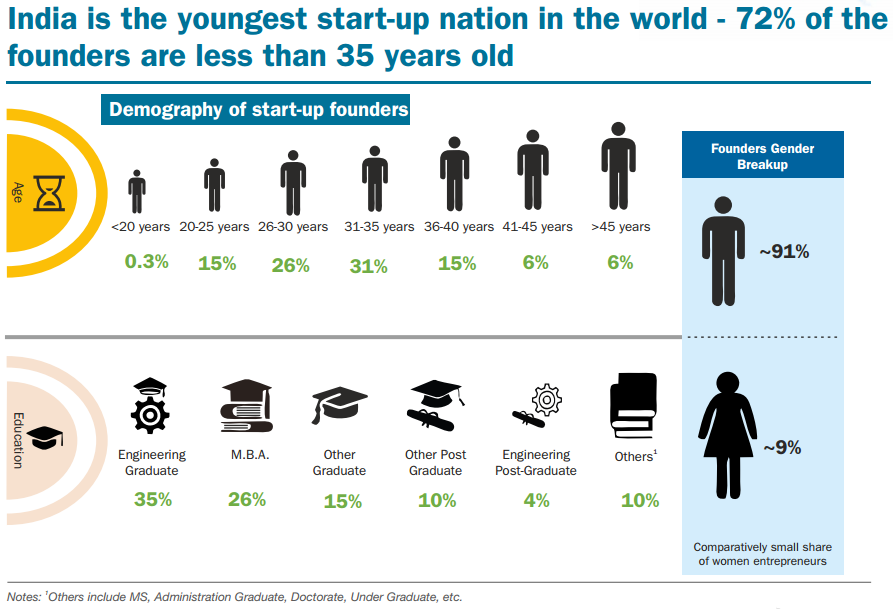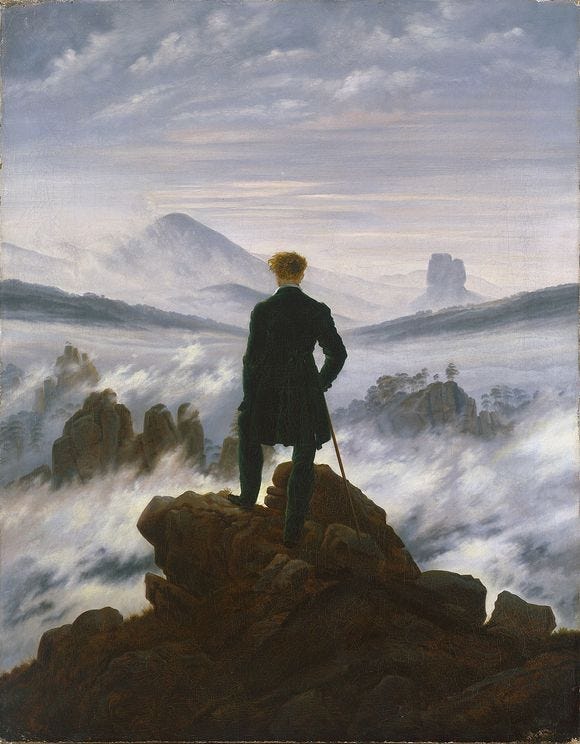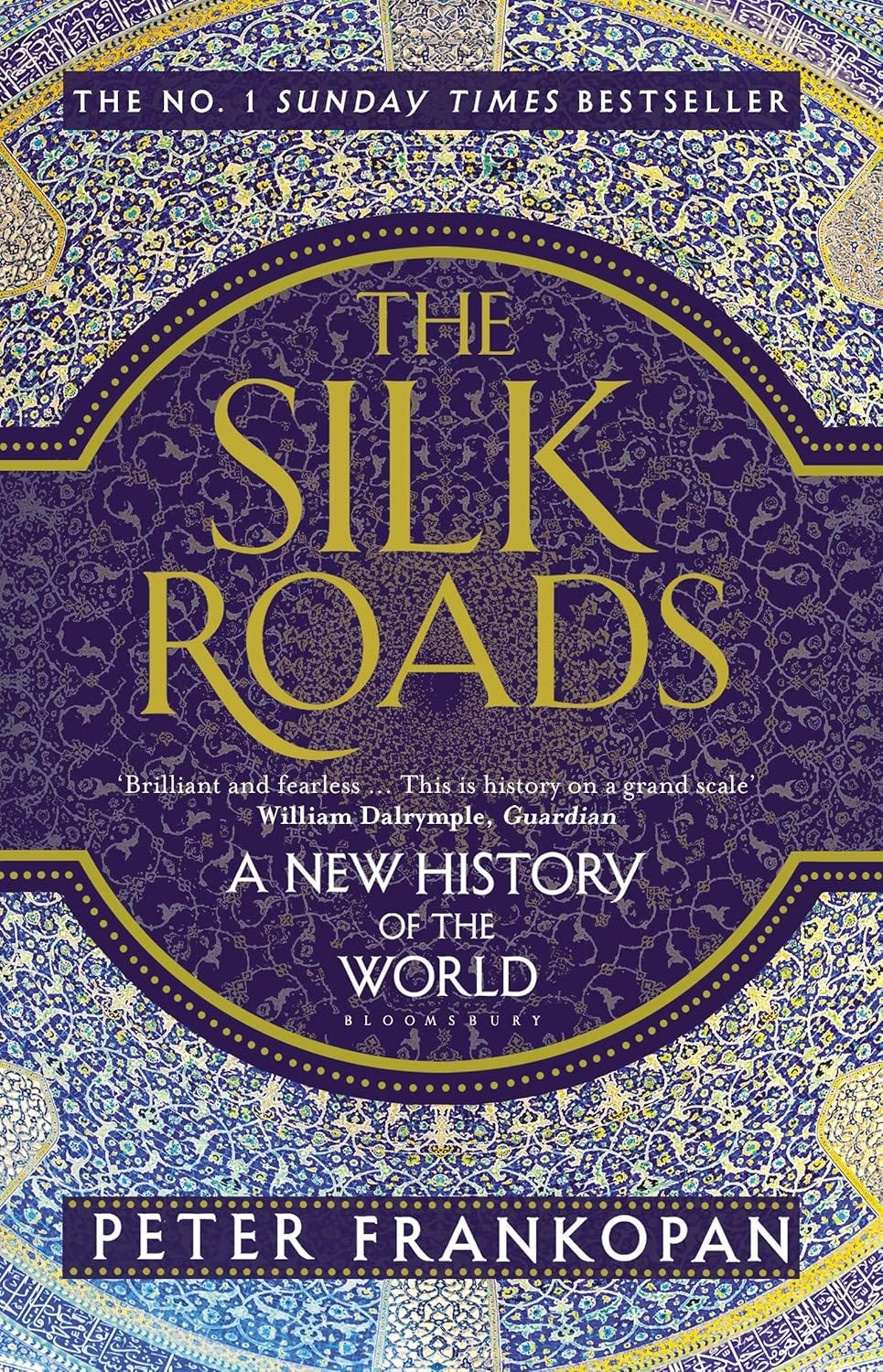August 2024 | Athera's Odyssey: India Ascending
From indigenous startups changing how India moves to thought leaders guiding India to the next stage: uncover the spirit of India's growth.
In this month’s edition of Athera’s Odyssey, we cover
Portfolio Perspectives: We take a look at how India has changed over the decade through the lens of logistics with ClickPost
Ecosystem Stories: In conversation with Ravi Venkatesan, Founder, GAME and ex-chairman of Microsoft India on how to make India inevitable.
Pathways: This month in Pathways, we’re sharing our love for exploration through books that help open our minds and push ourselves to new frontiers.
Portfolio Perspectives: ClickPost
In honor of India's 78th Independence Day, we are putting a spotlight on the entrepreneurs shaping the nation's future in the digital age. This month, we celebrate ClickPost, a portfolio company that embodies the spirit of innovation and self-reliance driving India's growth since independence.
From their early ventures to building a pioneering logistics intelligence platform, Naman Vijay and Prashant Gupta's entrepreneurial journey exemplifies the innovative spirit reshaping India's logistics landscape.
Naman's path to ClickPost included experiences at Barclays and a venture called Pyck, while Prashant's journey took him through roles at InMobi and a brief stint as co-founder of Shifter.in. Their combined expertise in technology, finance, logistics, and a shared friendship since school laid the foundation for ClickPost.
Over the course of this blog, we will look at the ClickPost journey and the lessons it teaches about how India is evolving through the lens of logistics.
Unboxing The ClickPost Journey
In 2015, Naman Vijay and Prashant Gupta found themselves at a career crossroads. Prashant had just completed a venture in the logistics space, while Naman had recently left his role at Barclays. They noticed their friends getting involved in the growing e-commerce sector and decided to create something to support this expanding industry.
The first few years involved experimentation as they explored different ideas in logistics and e-commerce. The breakthrough occurred in 2017 when they realized their strength in developing software products could just be what the burgeoning Indian e-commerce companies needed to transition from viewing logistics as a cost item on the balance sheet to a new avenue for market expansion and better customer experiences.
This insight led them to a crucial understanding: Indian e-commerce needed localized solutions to thrive.
ClickPost found its niche in this realization. They set out to build a logistics intelligence platform that would empower brands and e-commerce companies with best-in-class technology, allowing them to compete with industry giants regarding customer experience.
Mapping The Indian Logistics Landscape
The Indian logistics market has been experiencing explosive growth, driven by the rapid expansion of industrialization, urbanization, and online retail.
According to a report by Research and Markets, the Indian e-commerce logistics market is expected to grow at a CAGR of 20.8% between 2021 and 2026, reaching a value of $11.48 billion by 2026. This growth is fueled by factors such as increasing internet penetration, rising smartphone usage, and a growing middle-class population with higher disposable incomes.

The unique nature of the consumer, geography, and other factors have shaped the Indian e-commerce ecosystem to evolve several distinctive features that require localized solutions:
In India, customers expect returns to be picked up from their doorstep, a service that's not common globally.
Cash on Delivery (COD) is a key feature of Indian e-commerce while rare in other markets.
OTP-based deliveries serve as a uniquely Indian security measure for package delivery.
These are some of the unique features that show the need for localized solutions, which global logistics giants have struggled to provide. This is why India presents a special challenge in building logistics products, necessitating solutions tailored to local needs.
The complexity of India's logistics landscape is further compounded by its vast and diverse geography. With 28 states and 8 union territories, each with its own unique challenges in terms of infrastructure and last-mile delivery, creating a one-size-fits-all solution is nearly impossible.
This is where companies like ClickPost thrive, with a deep understanding of India's unique logistics landscape. Its AI-driven approach is crucial, allowing for adaptability and optimization across various regions and scenarios.
Building the Cognitive Engine of E-commerce
ClickPost's vision extends beyond mere automation. The company sees AI as the cognitive engine that will drive the future of e-commerce logistics. This transformation is taking place in three key areas:
Self-healing products and services proactively address issues before customers notice them.
Hyper-personalization tailors experience with unprecedented precision.
Intelligent Engagement reduces spam through highly targeted, relevant communications.
This cognitive transformation is not just about technology; it's about changing the very nature of logistics. The industry is evolving from a cost-first function to an experience-driven one, and further into a market expansion function.
The integration of AI and ML in logistics is not just a trend but a necessity in the Indian context. With the sheer volume of e-commerce transactions - expected to reach 300-350 million shoppers by 2025 according to a Bain & Company report - manual processes are simply not scalable. ClickPost's AI-driven solutions are designed to handle this scale while maintaining efficiency and accuracy.
As ClickPost looks to the future, the company envisions three key developments for Indian logistics:
The logistics ecosystem needs to innovate rapidly to transform logistics into a market-expanding function.
A world where returns and new orders can be efficiently connected without unnecessary warehouse detours, creating true omnichannel connectivity.
Indian companies should be at the forefront of innovation in logistics tech, given the enormous potential for growth in the coming years.
Building for the Long Haul
What sets ClickPost apart is not just its technology, but its approach to building a business.
Despite operating for seven years, the company only recently raised a significant funding round. This patient, value-focused approach has allowed ClickPost to build deep relationships with customers and develop solutions that truly address their needs.
This approach aligns well with the changing dynamics of the Indian startup ecosystem. After years of prioritizing growth at all costs, there's a growing emphasis on sustainable business models and profitability. ClickPost's focus on building a profitable business from the ground up, positions it well in this evolving landscape.
As ClickPost continues to evolve, its mission remains clear: to build great software for industries that need it, helping them grow more than they could have without it. In doing so, ClickPost is not just riding the wave of India's e-commerce boom – it's helping to shape the very future of logistics in the world's fastest-growing major economy.
For aspiring entrepreneurs and tech enthusiasts looking to make their mark, ClickPost's journey offers valuable lessons. It shows that sometimes, the most impactful innovations come not from chasing the latest trends, but from deeply understanding and addressing the unique challenges of your market. As India's e-commerce sector continues to evolve, companies like ClickPost will play a crucial role in ensuring that the country's logistics infrastructure can keep pace with its ambitious growth trajectory.
The future of Indian e-commerce logistics is filled with promise, spearheaded by companies like ClickPost that lead the way in innovation and localized solutions. As the sector continues to grow and evolve, we look forward to witnessing groundbreaking developments that will not only benefit the Indian market but also have the potential to set new global standards in e-commerce logistics.
Ecosystem Stories with Ravi Venkatesan
As India celebrates another year of independence, Athera sat down with Ravi Venkatesan, a visionary leader whose career has not only mirrored India's transformative journey but actively shaped it. From his early days as a "reluctant manager" at Cummins to his pivotal role as Chairman of Microsoft India, and now as a leader focused on mass entrepreneurship and climate action, Ravi's insights offer a unique lens through which to view India's past, present, and future.
Without further ado, here is our conversation with Ravi.
The Three Stages of India's Economic Liftoff
Athera: Ravi, you've had a front-row seat to India's economic transformation. How would you break down this journey?
Ravi: It's been an incredible ride, and I'd say there have been three distinct waves:
The Great Indian Unbundling (1991-2000):
I graduated from IIT Bombay in 1985 and, like many of my classmates, left India for graduate studies in the US. India was a closed economy then, with limited opportunities for ambitious graduates. The reforms of 1991 changed everything. In 1996, I felt a strong desire to contribute to the development of modern India. I returned to lead a joint venture between Cummins and Tata Motors in Jamshedpur. The opportunity to build something entirely new was extremely thrilling. We grew the venture from nothing into a highly profitable business worth a thousand crore by 2000.
The Silicon Tsunami (2000-2010):
The rise of India's IT sector has completely transformed the country. It has changed the opportunities and the way the world perceives India. During my time at Microsoft India, I witnessed the sector's growth from almost non-existent to generating $100 billion in revenues, and now it's on its way to $500 billion.
The Entrepreneurial Explosion (2010-Present):
The success of first-generation companies like Infosys and Cognizant has inspired second-generation entrepreneurs like Sachin and Binny Bansal of Flipkart and Bhavish Aggarwal of Ola. What's most exciting is the increasing inclusivity of this wave. We're seeing entrepreneurs who aren't from elite colleges or English-speaking backgrounds, starting businesses all over the country.
The Evolution of Indian Entrepreneurs
Athera: How have you seen Indian entrepreneurs change over the years?
Ravi: It's been a fascinating transformation. The early IT entrepreneurs in the '90s and early 2000s were primarily using Indian talent to serve opportunities in developed countries. The big change came when Indian entrepreneurs started focusing on Indian opportunities.
Initially, we saw a lot of consumer internet companies, but now entrepreneurs are addressing a wide range of issues. Just this morning, I was looking at a young entrepreneur starting a hyper-efficient cooling company. At IIT Madras, I met someone who started a rocket company. There's a Delhi-based startup that's already a world leader in battery recycling.
So, you're seeing not just copycat entrepreneurs who are building an Uber look-alike or an Airbnb look-alike, but they're looking at local opportunities and quite innovatively trying to solve them. Some of these businesses have the potential to go global.
The next wave is really in the hinterland, where we're seeing people without formal education or significant resources identifying local opportunities and pursuing them. This is the space I'm most interested in now - what I like to call mass entrepreneurship.
Athera: How do you see this trend of mass entrepreneurship developing?
Ravi: I often use a sports analogy to explain this. India became a world leader in cricket only when it became more democratic. We had people like Dhoni enter who were not English speaking, not convent educated but had prodigious talent and raw drive. The same thing is happening now in chess. As it becomes more inclusive, with young kids playing in local tournaments and rising to state and national levels, we're seeing grandmasters at age 13.
If we can get every young child to think about entrepreneurship, dream about entrepreneurship, and aspire to start a business, seeking a job only as a fallback, I believe India will undergo a remarkable transformation.
Changing Business Landscape
Athera: In your book "Conquering the Chaos," you wrote about multinational companies entering India. How has the landscape changed since then?
Ravi: Several significant changes have occurred since I wrote that book in 2013. First, there's been a massive improvement in infrastructure, particularly digital infrastructure, thanks to initiatives like India Stack. We've also seen broader improvements in airports, roads, and connectivity.
Another big change is the rise of China and the resulting global unease, which has made many more companies and countries interested in India as part of their "China plus one" strategy.
The political scene has also changed dramatically, with a concentration of power that has resulted in oligarchic capitalism and a less level playing field economically.
There's more self-belief and self-confidence about India's economic future now but also concerns about whether this growth will result in broad-based development. The real challenge for India is that we might continue to have GDP growth without being able to lift all our people, potentially stagnating as a middle-income country.
Three Mountains and Three Wishes
Athera: What are the major challenges India faces in its growth journey?
Ravi: Despite the progress, three key mountains need climbing:
Concentration of power:
The concentration of power has also resulted in oligarchic capitalism, much more concentration of economic power and wealth in the hands of relatively few, and increasingly a non-level playing field.Inequality:
We keep talking about the demographic dividend, but our human capital doesn't have the skills that are required. We need to deliver a mass flourishing of innovation and mass prosperity. If you want prosperity and jobs and communities to thrive, you need a lot more of these MSMEs that are healthy, and productive, create jobs, and pay good wages.Climate Change:
In terms of the potential downsides of climate change, India is positioned to be hit the worst in terms of scale and severity. Hence we need to take climate change more seriously, both on the mitigation and even more on the adaptation side.
Athera: If you had a magic wand, what changes would you make for India's future?
Ravi: My wish list includes:
A robust judicial system that offers swift and accessible justice for all.
A well-functioning public health system that doesn't exploit.
Embracing "modern values" like individualism, agency, and healthy risk-taking.
A Ravi Reading Recommendation and Vision
Ravi: "Mass Flourishing" by Edmund Phelps is a must-read. It's shaped my thinking on how societies progress and thrive.
As we conclude our discussion, Ravi leaves us with a vision of India not only as an economic powerhouse, but also as a country with widespread prosperity, environmental consciousness, and global leadership. In Ravi's vision, India is seen as not just a place of economic strength, but also of shared prosperity, environmental stewardship, and global influence.
As we commemorate another year of independence, perhaps it's time to embrace this vision and strive to make India truly unstoppable on the world stage. The transition from disorder to global leadership is already in progress, and India's future looks more promising than ever.
Pathways
In this month’s edition of Pathways, we cover themes of exploration - with a dash of ‘daunting’ thrown in. As always, the sequence of our recommendations is set in an order that will hopefully draw your interest into the subject and hold it there as we move from simple and exciting to complex and eye-opening.
Endurance
Start with one of the defining tales of modern exploration and heroism. Endurance by Alfred Lansing is the story of polar explorer Sir Ernest Shackleton’s attempt to make the first land crossing of the Antarctic continent in 1914. This is a harrowing and miraculous tale of the crew’s survival in the face of freezing temperatures, treacherous seas, and limited supplies - to say the least. Leadership, camaraderie, and resilience are central themes, and the story makes for a legendary tale of the human spirit standing up to overwhelming odds. If you like this, perhaps also try The Last Place on Earth by Roland Huntford, the story of Scott and Amundsen’s race to the South Pole. Over the Edge of the World by Laurence Bergreen would also be worth a read - this is the story of Magellan’s historic circumnavigation of the globe.
The Motorcycle Diaries
Continue with a softer story of travel and (self) exploration - slower, not as heroic, but perhaps equally moving. The Motorcycle Diaries is a landmark memoir by “Che” Guevara (yes, the same), who in 1952 - then aged 23 - set out with his companion Alberto Granado to explore South America on a 500cc Norton. This is a different Guevera - these are diaries written eight years before the Cuban Revolution. In a tale of youthful adventure, self-discovery, and coming-of-age, you will accompany Che and Alberto through diverse landscapes and diverse peoples through his vivid descriptions. These experiences profoundly impacted Guevara, and you will see signs of some of the “revolutionary” transformation.
The Silk Road
End with a different kind of exploration - that of traders and merchants, rather than heroic leaders. The Silk Roads by Peter Frankopan implores us to look at history - cities and nations - through the lens of the intricate trade routes that connect them, and in the process, takes us through an astounding journey of trade and conquest, the rise and fall of empires, the spread of ideas, politics and cultures, and ultimately human connectedness. This is a refreshing and important lens on history, and balances Eurocentric worldviews of trade — East and West have always been inextricably linked, and trade has been as ‘heroic’ as any other kind of exploration.













